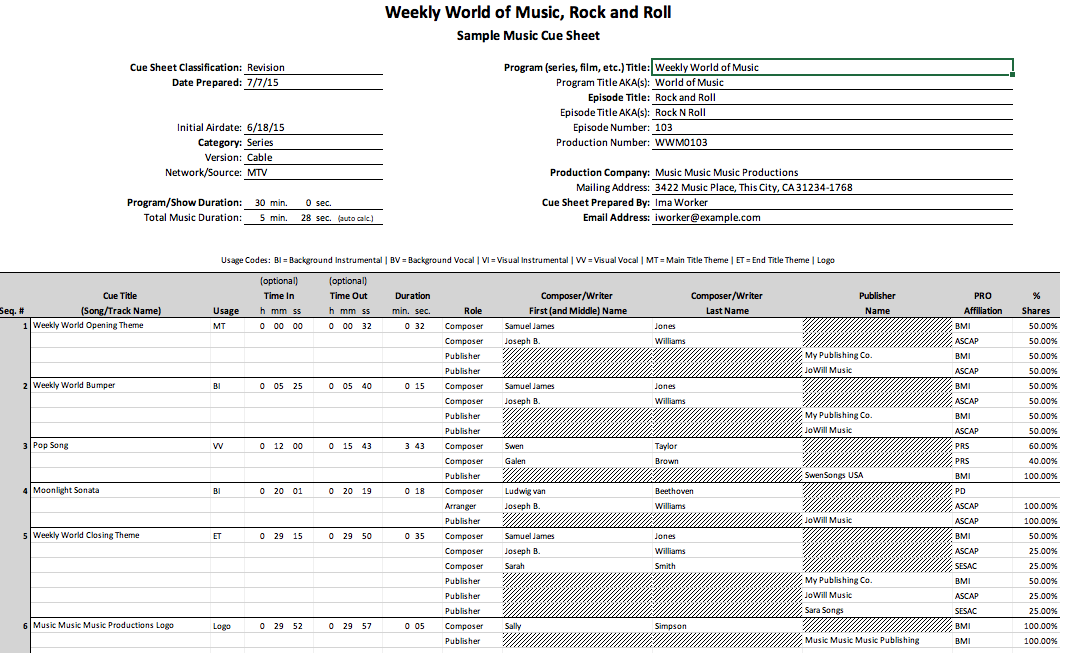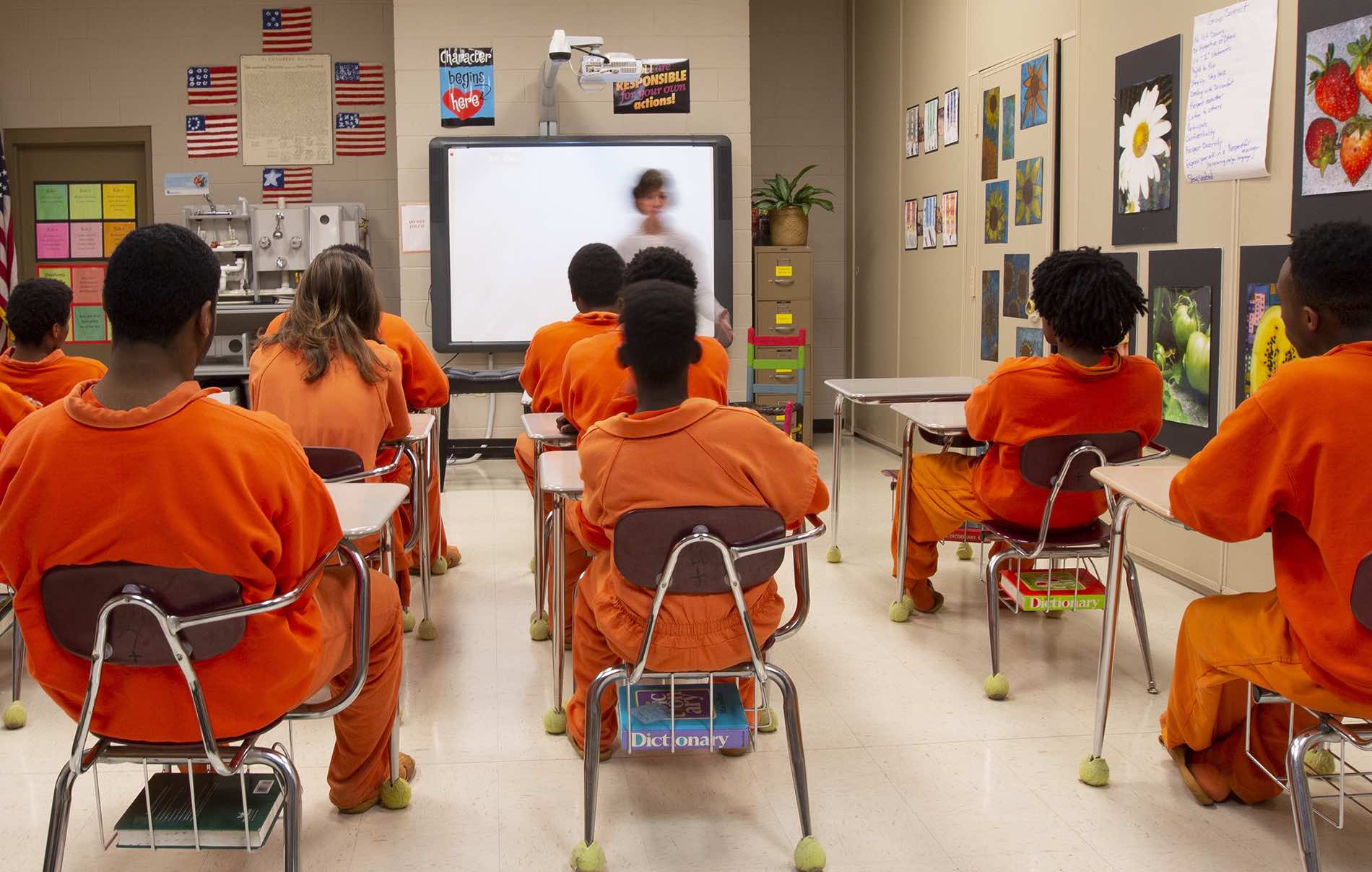The following information on what a music supervisor does is excerpted from the Berklee Online course Music Supervision 1, written by Brad Hatfield, and currently enrolling.
Whether it’s Guardians of the Galaxy or Pulp Fiction, Stranger Things or Mad Men, a great soundtrack will elicit reactions that music and visuals cannot accomplish on their own. The perfect song placement will drop you into a certain time period, make you interpret lyrics in a new way, and clue you into characters’ emotions that they haven’t disclosed in dialogue.
If you’ve ever wondered whose job it is to pick and coordinate the songs for film, TV, advertising, games, and other media, it’s the job of a music supervisor. Music supervision can be a career all on its own, especially for high-budget projects, however, it’s important to know that anyone working in media might have to be a music supervisor at any point. For example, a producer on a TV show might suddenly be in charge of licensing a piece of music, a music editor might be asked to supply a song for a scene, or a composer could be asked for additional songs in a style that they are not comfortable writing.
You never know when a music supervision opportunity might present itself, which is why adding music supervision to your skill sets could set you up to be a valuable member of a production team.
Music Supervisor Janet Billig-Rich
This happened to Janet Billig-Rich, who was the manager for Nirvana, Hole, and Dinosaur Jr. On Berklee Online’s Music is My Life podcast, she said that when her children were born she wanted to make a career switch that would not involve touring most of the year. She decided to drop her clients and make some phone calls in search of a new endeavor.
“I said I’m basically for hire,” says Billig-Rich. “I could do whatever. I’m a quick study. One of the first people to call me back was someone who I still work with, his name is Steven Cantor and he’s an incredible filmmaker, and he called me and he said, ‘I just had a series [Family Bonds] greenlit by HBO and I’m going to put you in as the music supervisor,’ and I was like, ‘Awesome, great. I’ll do that.’”
She has since started her own music supervision and clearance business, and worked on projects like Broadway’s Rock of Ages, Moulin Rouge, and the upcoming MJ: The Musical. Because Billig-Rich had a deep understanding of music licensing from her time working at record labels, she was able to pick up music supervision quickly.
Music Supervision Challenges
While not everyone has decades of experience working in the music industry like Billig-Rich, you can still learn everything you need to know to take on a music supervision gig with Berklee Online’s Music Supervision Professional Certificate.
In this excerpt from one of the five courses in the program, Music Supervision 1, you will learn about some of the challenges that you will face as a music supervisor: finding the right pieces of music that supports the story, licensing that piece for its specific use, and accurately documenting on a cue sheet.
Finding the Right Piece of Music
There are many occasions where the music supervisor starts their job before the filming of a show, movie, or advertisement takes place. For example, if a scene in a movie script says that actors are dancing in a wedding reception scene to “Hot, Hot, Hot” as recorded by Buster Poindexter, the music supervisor needs to immediately get in contact with the rights owners and start negotiating a license. It is also possible that a music supervisor will need to talk with the artist’s management to get approval.
Let’s look at some of the options a music supervisor would have. The song “Hot, Hot, Hot” can be licensed, but the record company has refused to allow the original recording to be used. This might be because the record company wants too much money, or the recording is about to appear in another movie and they don’t want to oversaturate the marketplace. There are many reasons why a rights holder might say no to an offer to be placed into a production. This is when the music supervisor has to get creative.
Possible solutions to this music supervision quandary might be:
- Rerecord the song as a soundalike. (This is not always acceptable by rights holders, especially in the case of the record label. A recording that sounds too much like the original is obviously being used to deceive the public, and essentially doing harm to the record label by bypassing the “original” version, and thus denying them the income.)
- Rerecord the song with a typical live band sound at the wedding scene.
- Replace the song with something equally popular that works for the script writers/director.
- Seek out new (licensable!) songs to present as possible replacements.
- Cut the scene.
It doesn’t take much to turn what might have been a clear-cut job into something very complex. If the music is not scripted, then there will be many options to consider. This can be a great opportunity to unearth the perfect fit for a scene, or set the tone for the entire project. The only thing stopping you from using all the music you want to use is the time needed to get license agreements, enough money in the budget, and of course, other peoples’ opinions.
The bottom line is that you’ll always need several licensable options to present to your superiors. As you know, folks have very different tastes in music, and you need to be able to take direction and be flexible. Even if you have the perfect song picked, someone may have other agendas, like the spouse of a lead actor happens to be a singer/songwriter who would like their song in the show!
Music Licensing
If you were lucky enough to find the right song for your project, the next part of the music supervisor’s job is to successfully negotiate a license for its use. There are many approaches to executing a license for songs in your project. The approach you take may be different, depending on whom you are negotiating with.
Current practice for films often involves sending a license quote request to the rights holders early on in production. A music supervisor wants to know as early as possible if a song will be licensable, and sometimes it can be a long process. In the license request, the music supervisor is essentially asking the rights holders how much they want to charge for the use of their song in the project.
Let’s say a scene has already been shot, and a music editor has temporarily placed an unlicensed song into the scene so the director and producers can get a feel for how the scene plays out with music. It is quite possible that the music works really well, and people get used to hearing it. It would be a good move for the music supervisor to send a request for a quote to the rights holders, just to see if the song can be licensed in time and within the budget.
A license quote could leave the dollar amount areas blank, allowing the rights owners to “name their price” for the use of the music. Or, if you have a specific amount in mind, you can write in a personalized note, “We were hoping for a fee of $xxxx.xx for this use.”
Some of the factors that would influence the cost of licensing include:
- The popularity of the song and/or recording of the song
- The usage type (background or featured)
- The length (term) of the license (Five weeks, one year, in perpetuity)
- The territories that the license covers (Local vs. Universe)
- The media types (all media, TV, film festival, web only, etc.)
- The overall budget of the production
Blanket Music License
On the flipside of this rather demanding task of locating rights holders and successfully negotiating fees for a specific use, you might be in a position where there is a blanket license in place. A blanket license will cover the use of any songs within a given Performance Rights Organizations (PRO) catalog (ASCAP, BMI, and SESAC), and it’s simply a matter of adhering to the guidelines of use. A typical situation might be a local television broadcaster that needs music for promotions and web broadcasts. The station can pay a blanket fee to the PRO and freely use the music as long as they follow the limitations of the license. In this case, a music supervisor has plenty of freedom to make quick creative choices.
Cue Sheets
Once the music has been found, licensed, and approved by your superiors for use, one of the last steps in a music supervisor’s job is to confirm that all details for each piece of music in the production are included in the cue sheet, and then filed with the performance rights organizations (BMI, ASCAP, SESAC, etc.).
What is a cue sheet?
The cue sheet is basically a log of every piece of music that is used in a production. The details of the production company, rights ownership (writers, publishers, sometimes master owners, and sometimes artist) as well as the type of use (background music, featured music, vocal, instrumental, theme, logo), the length of the use and the PRO affiliations of each writer and publisher.

Throughout the course of production, songs that were resting comfortably in the project might be substituted at the last minute, or some scenes with music might be completely removed. It can be taxing to deal with the sudden need for new music, or songs that were a headache to license that are suddenly no longer needed. The best thing you can do is to make the needed adjustments in the cue sheet, and keep on going!
Getting the information correct in the cue sheet is crucial. If mistakes or omissions are made, it might be months or years before they are discovered, and as you can imagine, it’s very time-consuming to get things changed after they have been circulated worldwide over a period of time. As a music supervisor, giving great care to this final step will ingratiate you to the writers and publishers that benefit from the performance royalties, and the next time you need a license, they will be ready and willing to work with you!
Learn More about Music Supervision
Hopefully you found this rundown on the basics of music supervision helpful. If you’re interested in earning your professional certificate in music supervision, here are the five Berklee Online courses that you will take:
- Music Business Trends and Strategies
- Music Licensing
- Copyright Law
- Music Supervision 1
- Music Supervision 2












